TREATMENT FOR HYPOTHYROIDISM
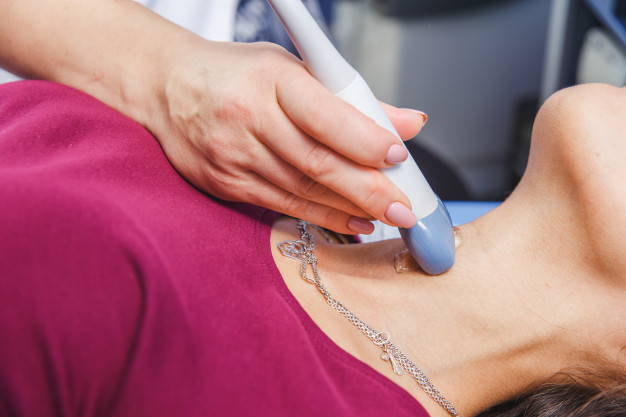
Hypothyroidism, also called underactive thyroid disease, is a common disorder. With hypothyroidism, your thyroid gland does not make enough thyroid hormone.
The thyroid gland is located in the front lower part of your neck. Hormones released by the gland travel through your bloodstream and affect nearly every part of your body, from your heart and brain, to your muscles and skin.
The thyroid controls how your body's cells use energy from food, a process called metabolism. Among other things, your metabolism affects your body’s temperature, your heartbeat, and how well you burn calories. If you don't have enough thyroid hormone, your body processes slow down. That means your body makes less energy, and your metabolism becomes sluggish.
SYMPTOMS
Hypothyroidism signs and symptoms may include:
- Fatigue
- Increased sensitivity to cold
- Constipation
- Dry skin
- Weight gain
- Puffy face
- Muscle weakness
- Elevated blood cholesterol level
- Muscle aches, tenderness and stiffness
- Pain, stiffness or swelling in your joints
- Heavier than normal or irregular menstrual periods
- Thinning hair
- Slowed heart rate
- Depression
- Impaired memory
- Enlarged thyroid gland (goiter)
- Changes in the menstrual cycle
- Hoarse voice
- Carpal tunnel syndrome
Babies with hypothyroidism may have no symptoms. If symptoms do occur, they can include:
- Cold hands and feet
- Constipation
- Extreme sleepiness
- Hoarse cry
- Little or no growth
- Low muscle tone (floppy infant)
- Persistent jaundice (yellowing of the skin and whites of the eyes)
- Poor feeding habits
- Puffy face
- Stomach bloating
- Swollen tongue
- Umbilical hernia
Children and teens may also have hypothyroidism with the signs and symptoms seen in adults.
- Delays in puberty
- Delays in growth and shorter stature
- Slow mental development
- Slower development of permanent teeth
CAUSES
- Hashimoto's thyroiditis
- Autoimmune disease
- Radiation therapy to the neck area
- Radioactive iodine treatment.
- Use of certain medications
- Thyroid surgery
- Pregnancy
- Problems with the thyroid at birth
- Pituitary gland damage or disorder
- Disorder of the hypothalamus
- Iodine deficiency
TYPES
- Primary hypothyroidism is caused by a problem with the thyroid gland itself.
- Secondary hypothyroidism occurs when another problem interferes with the thyroid's ability to produce hormones. For example, the pituitary gland or hypothalamus produce hormones that trigger the release of thyroid hormone. A problem with one of these glands can make your thyroid underactive.
- Tertiary hypothyroidism-Sometimes, an underactive thyroid that results from a problem with the hypothalamus is called tertiary hypothyroidism.
RISK FACTORS
Women, particularly older women, are more likely to develop hypothyroidism than men. You are also more likely to develop hypothyroidism if you have a close family member with an autoimmune disease. Other risk factors include:
- Race (being white or Asian)
- Age (growing older)
- Prematurely graying hair
- Autoimmune disorders such as type 1 diabetes, multiple sclerosis, rheumatoid arthritis, celiac disease, Addison's disease, pernicious anemia, or vitiligo
- Bipolar disorder
- Down syndrome
- Turner syndrome
COMPLICATIONS OF HYPOTHYROIDISM
Untreated, hypothyroidism may cause complications, such as:
- Balance problems. Older women are at extra risk for balance problems if their thyroid hormone levels are too low.
- Goiter. If your thyroid is always trying to produce more hormones, the gland can swell and change the appearance of your neck. You may also have trouble swallowing.
- Heart problems. Hypothyroidism puts you at greater risk for heart disease and can raise your levels of LDL or “bad” cholesterol.
- Infertility. Too little thyroid hormone may disrupt your production of eggs (ovulation) and make it harder to conceive.
- Joint pain. Low levels of thyroid hormone can cause you to have aches and pains in your joints and muscles, as well as tendonitis
- Mental health issues. Low thyroid hormones can cause memory or concentration lapses, as well as decreased interest in activities you used to enjoy. See your doctor if you notice these changes, as they could also be due to depression unrelated to your thyroid.
- Obesity. Although hypothyroidism may curb your appetite, you can gain weight because your metabolism slows down too, and you don’t burn enough calories.
- Peripheral neuropathy. Over time, low thyroid hormones can damage your peripheral nerves. You may notice pain, tingling, or numbness in your limbs.
- Thyroid problems in a pregnant woman can affect the developing baby. During the first three months of pregnancy, the baby receives all thyroid hormone from its mother. If the mother has hypothyroidism, the baby does not get enough thyroid hormone. This can lead to problems with mental development.
- Extremely low levels of thyroid hormone can cause a life-threatening condition called myxedema. Myxedema is the most severe form of hypothyroidism. A person with myxedema can lose consciousness or go into a coma. The condition can also cause the body temperature to drop very low, which can cause death.
Our Branches
Valasaravakkam
Kotturpuram
DIAGNOSIS
If you have many of the common symptoms of hypothyroidism, such as dry skin, constipation, fatigue, and a hoarse voice, you can make an appointment with your doctor to check for hypothyroidism. Your doctor can perform various screenings:
- A physical exam
- A blood test
- An imaging scan
If these tests show an elevated thyroid-stimulating hormone (TSH) and low levels of thyroid hormones — like free T4, total T3, or free T3 — may be an indication that you have hypothyroidism.
PREVENTION
There is no way to prevent hypothyroidism, but people who may have a higher risk of thyroid problems, for example, women during pregnancy, should check with their doctor about the need for additional iodine.
People can be tested for early signs of the condition. If tests are positive, they can take measures to prevent the disease from progressing.
There is no evidence that a particular diet will prevent hypothyroidism, and there is no way to prevent hypothyroidism.
TREATMENT FOR HYPOTHYROIDISM
Treatment for hypothyroidism focuses on supplementing the thyroid hormone. At present, doctors cannot cure hypothyroidism but they can help people to control it in most cases.
- Synthetic thyroxine. To replenish levels, doctors usually prescribe synthetic thyroxine, a medication that is identical to the T4 hormone. Doctors may recommend taking this in the morning before eating each day.Regular monitoring will be required, but the frequency of blood tests will likely decrease over time.
- Iodine and nutrition. odine is an essential mineral for thyroid function. Iodine deficiency is one of the most common causes of goiter development, or abnormal enlargement of the thyroid gland
- People with hypothyroidism should discuss any major dietary changes with their doctor, especially when starting a high fiber diet, or eating lots of soy or cruciferous vegetables.Diet can affect the way in which the body absorbs thyroid medication.
- During pregnancy, iodine requirements increase. Using iodized salt in the diet and taking prenatal vitamins can maintain the required levels of iodine.
In most cases, medications for hypothyroidism will need to be taken for the rest of the patient’s life.
BEST TREATMENT FOR HYPOTHYROIDISM
The study by the Global Advances in Health and Medicine suggests that acupuncture is a viable treatment option for hypothyroidism. Acupuncture is considered as the best remedy for the hypothyroid problems. As with any disease or disorder, traditional Chinese medicine regards as being caused by an imbalance of yin (loosely defined as structure) and yang (function) in the body. The goal of Chinese medicine is to achieve a balance between these two forces.Hence, hypothyroidism can be treated without surgery and Acupuncture can be the best relief for Hypothyroidism.
EFFECTIVENESS OF ACUPUNCTURE TREATMENT
The key points for the treatment of signs symptoms and the root cause of clinical hypothyroidism are Du4,Ren4,Ren6,St36,Sp6,UB17,UB23,Li4,P6.Acupuncture gives satisfying results and improves the condition significantly.In the treatment of hypothyroidism. Acupuncture can be used to regulate energy levels, restore hormonal balance, smooth emotions and help manage sleep, emotions and menstrual problems. Hypothyroidism is a condition of true deficiency in Yang Qi of the body. The etiology of hypothyroidism is rooted in improper diet, overexertion, or environmental factors. Several patterns were discussed to reflect the pathogenesis of the thyroid deficiency and explain the mechanism of the progression of the disease from Spleen Qi deficiency, to development of Spleen, Kidney and eventually Heart Yang deficiency, and further involvement of the Lungs and Liver, and eventually exhaustion and collapse of Yang, finally resulting in coma as the condition continues to worsen. Acupuncture as part of Traditional Chinese Medicine can give very satisfying and long-term positive results in the treatment of hypothyroidism.
MECHANISM OF ACUPUNCTURE
According to Traditional Chinese Medicine,there are three types of hypothyroidism: Spleen and Kidney qi deficiency, Heart and Kidney yang deficiency and Kidney jing deficiency. Acupuncture stimulates the nervous system and causes the release of neurochemical messenger molecules. The resulting biochemical changes influence the body's homeostatic mechanisms, thus promoting physical and emotional well-being. The acupuncturists seek the root cause within the pattern of imbalance and the hypothyroidism can be described as Kidney Yin and Yang deficiency and is the best alternative treatment for hypothyroidism. When the needles are inserted into certain acupoints, the Liver and Kidney Yin strengthens,the heat clears and the Kidney Yang invigorates.
BEST CURE FOR HYPOTHYROIDISM
Acupuncturist. A. Shaji Bharath, the best Acupuncturist from the best rated clinic Dr.Bharath’s Acu Heal gives the best relief for hypothyroidism. He is currently treating patients for a wide range of conditions. As a best acupuncture practitioner with 15 years of experience, and having worked with several endocrinologists, Acupuncturist. A. Shaji Bharath can create the treatment plan for the best cure for hypothyroidism to manage the condition that's tailored to your needs. As the top acupuncture doctor in Chennai he has witnessed acupuncture doing wonders on people suffering from hypothyroidism. So, take some time to find the right pain management and best remedy for hypothyroidism that suits you. Most people can treat the problem with home care and medicines but the better option for permanent result is acupuncture for hypothyroidism.
Dial: +91 9884746916 or Visit: drbharathsacuheal.com for more details on treating hypothyroidism using Acupuncture,by contacting the top acupuncture doctor in Chennai.
BEST ACUPUNCTURE DOCTOR NEAR ME
To choose the Best doctor for Acupuncture, it's important that the Acupuncturist should have a decade of experience and treated at least 1000 to 2000 patients.
You can also search for the Best Acupuncture Doctor near me or ask your primary care physician to refer an experienced Acupuncturist nearby. Once you find the Best Acupuncture Doctor in Chennai, you may go through their google reviews first and then fix an appointment with the doctor only when you are satisfied with the reviews.
The Best Acupuncture Doctor should address your concerns and help you feel more comfortable before your first session. Acupuncture usually takes numerous sessions or several weeks to get a complete cure in any ailment but within 3 or 4 sessions the patients will experience positive differences.
BEST ACUPUNCTURE CLINIC NEAR ME
There are numerous clinics popping up and it is sometimes skeptical to choose the best or even the safe one. To address such concerns, you can look into the following points to choose the best acupuncture clinic for treating hypothyroidism. Acupuncture is also offered in hospital pain clinics and by healthcare organizations but it is ideal to visit the best Acupuncture Clinic. If you are not sure, it would be a good idea to contact your local doctor to see if they would be prepared to refer to the best rated acupuncture clinics. Acupuncture is offered in top rated acupuncture clinics near me because conventional treatment has failed or produces unacceptable side effects. Most of the best acupuncture clinics for hypothyroidism will spell out very clearly what type of acupuncture they practice and how professional they are - at present anyone can set themselves up as an acupuncturist but reputable practitioners will belong to an organization. So while you are filtering the best clinics for acupuncture that treats hypothyroidism, you can look out for these factors.
We have been rewarded a 5-star rating from Google & Practo. You can also check the reviews there.
THE BOTTOM LINE
Being diagnosed with hypothyroidism doesn’t mean you’ll have to follow a strict diet, although a few adjustments may be necessary. Dial: +91 9884746916 or Visit: drbharathsacuheal.com for more details on treating hypothyroidism using Acupuncture
SCIENTIFIC REFERENCES:
- Chunxiang T.; Question and Answers - How to Give TCM Differential Treatment for Hypothyroidism?; Journal of Traditional Chinese Medicine 2008; 28(3): 231-232.
- Abbate S.; The Early Diagnosis and Treatment of Hypothyroidism; AcupunctureToday; July, 2001, Vol. 02, Issue 07.
- Joswick D.; Treating Thyroid Problems with Acupuncture; 2016 [www.acufinder.com]
For further clarifications or
to fix an Appointment
Thank you for choosing us
Our experts will get back to you at the earliest
or
FAQ:
What are the services provided for hypothyroidism by Dr. Bharath’s Acu Heal?
After a thorough investigation by pulse and tongue diagnosis, the condition of the disease is understood by the Acupuncturist. The positive changes in symptoms will be experienced only after a month or two. During the treatment T3, T4, TSH will be dropped down to normal, simultaneously tapering down the medication. Also, the patient will be advised on a diet with food restrictions and exercise regime which includes an induced sound sleep that plays a vital role in reversing the disease.
What are the benefits of acupuncture for hypothyroidism?
This is a drugless therapy and there are no side effects. After completing the course of treatment, in few cases, any form of previous medication can either be stopped or reduced.
How many sessions do you need for hypothyroidism?
It takes around two sessions weekly for a duration of 8 to 9 months approximately.



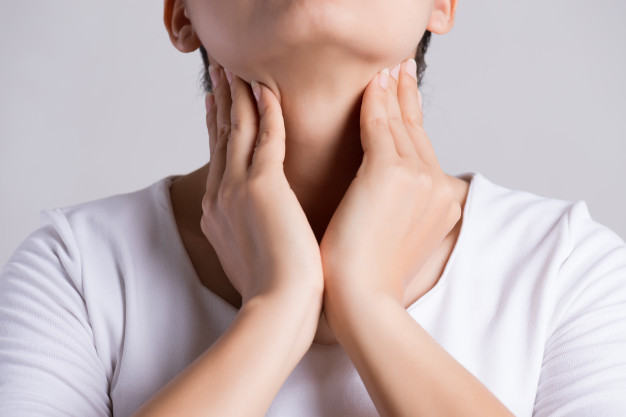 TREATMENT FOR HYPERTHYROIDISM
TREATMENT FOR HYPERTHYROIDISM
 TREATMENT FOR METABOLISM
TREATMENT FOR METABOLISM
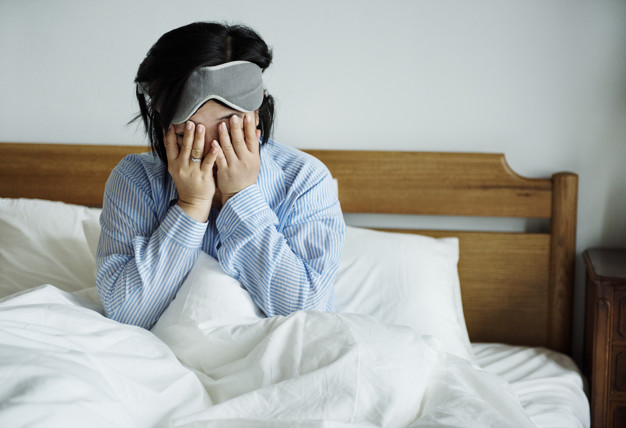 TREATMENT FOR LACK OF SLEEP
TREATMENT FOR LACK OF SLEEP
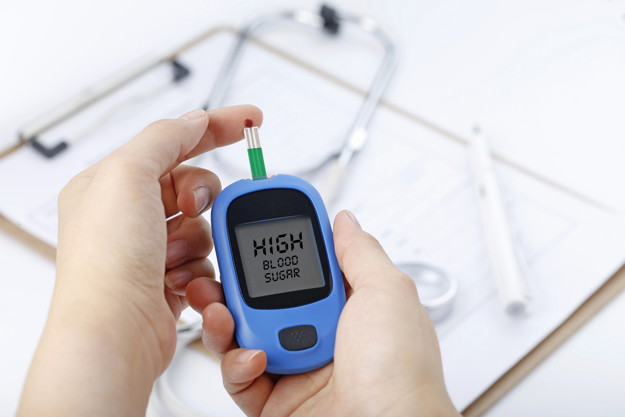 TREATMENT FOR DIABETES
TREATMENT FOR DIABETES
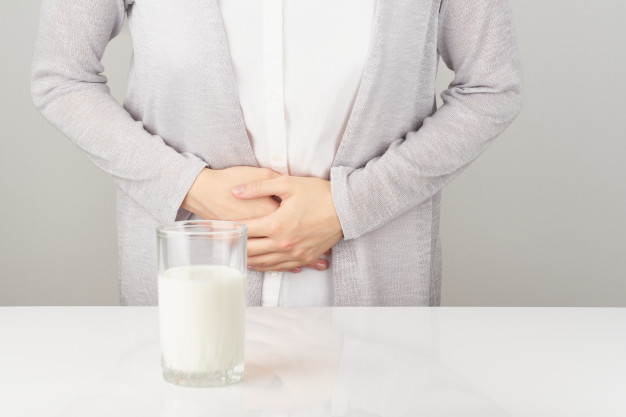 TREATMENT FOR BLOATING
TREATMENT FOR BLOATING
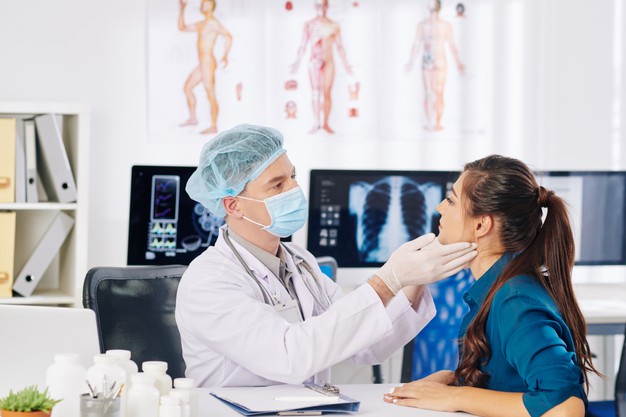 TREATMENT FOR THYROID
TREATMENT FOR THYROID
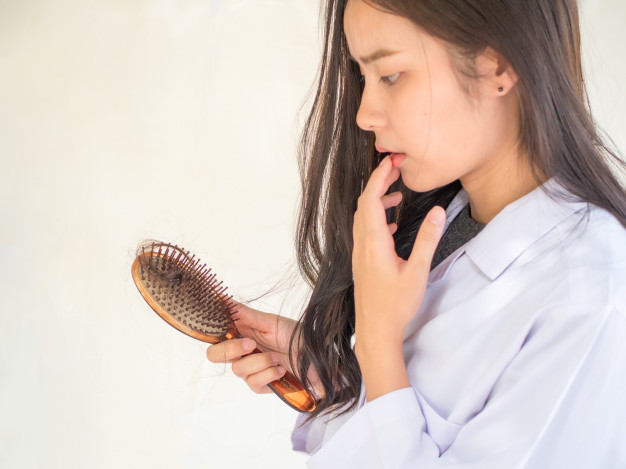 TREATMENT FOR HAIR LOSS
TREATMENT FOR HAIR LOSS
